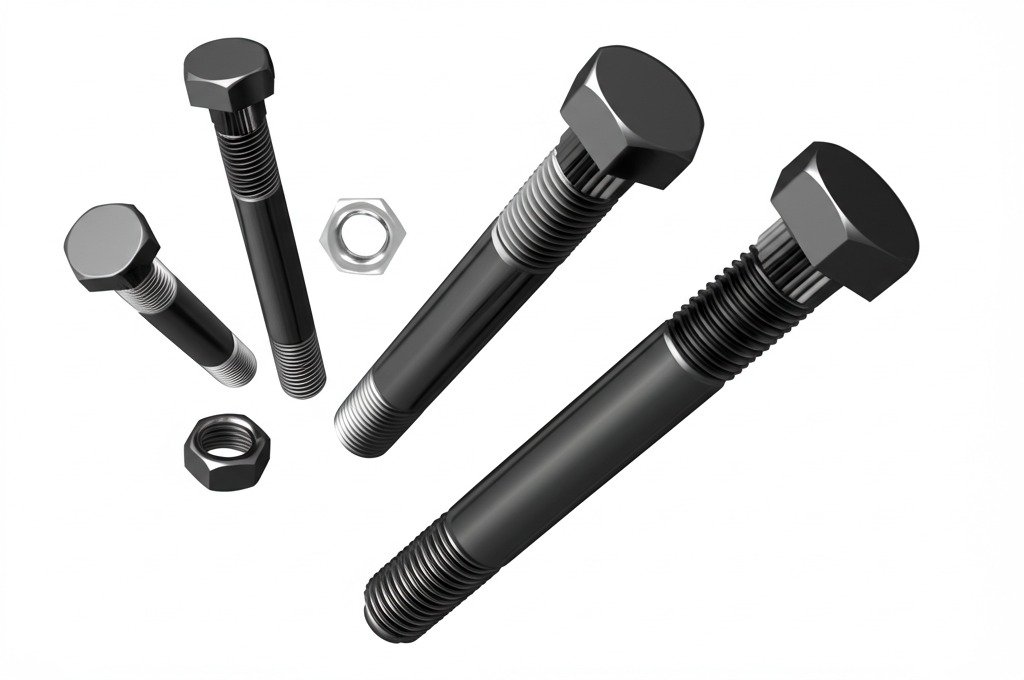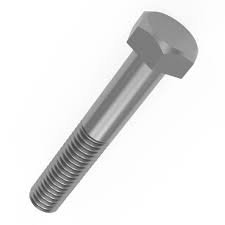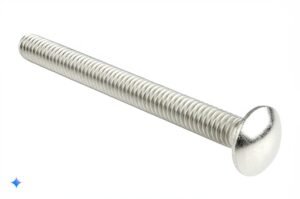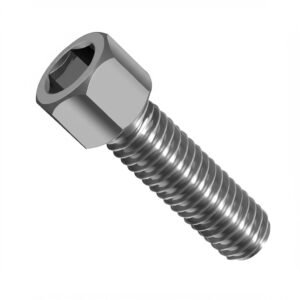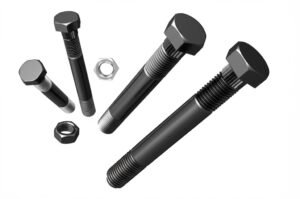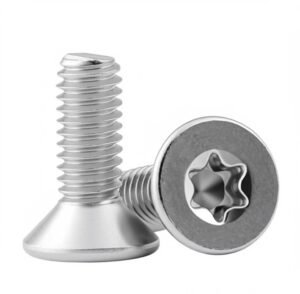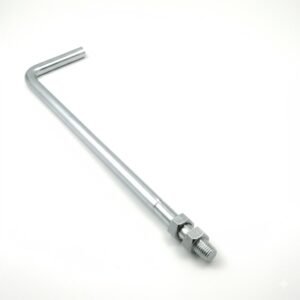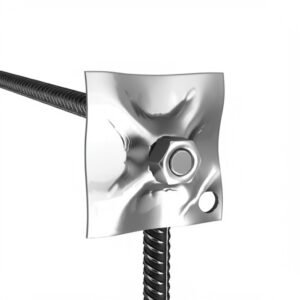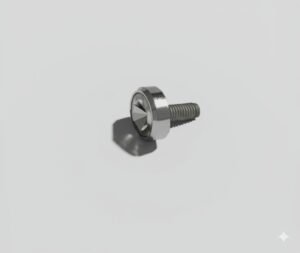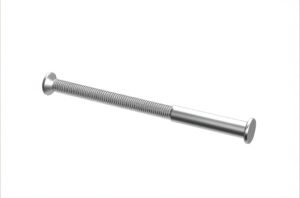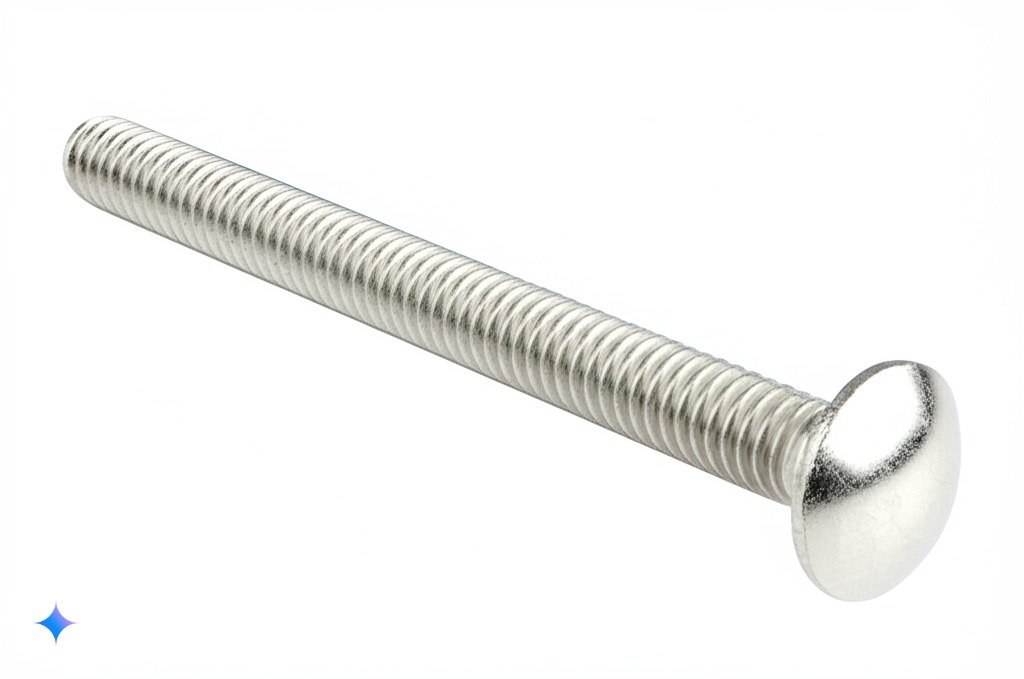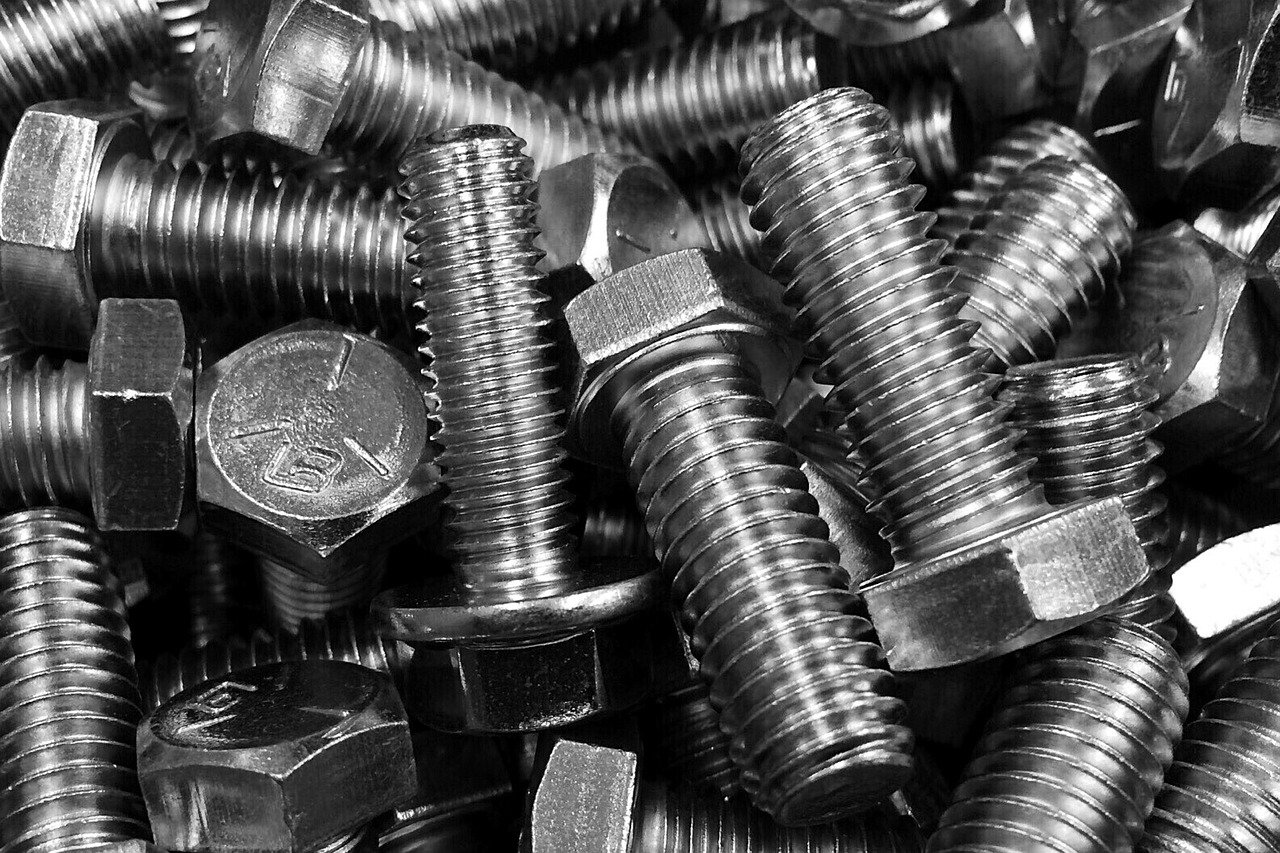By Nicolás Longo LinkedIn
(As an Amazon Associate we earn from qualifying purchases)
Bolts are indispensable fasteners that secure components in countless applications—from machinery to construction. In this comprehensive guide, you will explore various bolt types and head variations while understanding their unique functionalities. This information is crucial for anyone seeking durable and reliable bolting solutions. Whether you are a seasoned engineer or a DIY enthusiast, knowing the differences between bolt types can significantly influence your decision-making process. The text highlights expert recommendations, fun facts, and research insights to assist you in selecting the ideal bolt for every project.
A Closer Look at Bolt Types and Variations in Fastening Solutions
Bolts come in many types, each designed for specific industrial applications. Their head variations, thread designs, and material compositions impact performance and safety. Studying these details not only ensures secure assemblies but also optimizes cost and efficiency in projects. By examining bolt types—from traditional hex bolts to socket head cap screws—you will gain the knowledge needed to choose the right fastener for each task. Different bolt head variations offer ergonomic benefits, facilitate higher torque, and provide easier installation. Understanding these factors is vital to ensure that your bolting solutions meet industry standards and deliver lasting reliability.
Understanding the Different Bolt Head Variations
The variety in bolt head designs enables specific mounting and mechanical advantages. Common head styles include hex bolts, socket head bolts, and carriage bolts. Each design has unique benefits, such as improved torque distribution or a lower profile. For example, hex bolts are widely used due to their versatility, while socket head bolts are popular in high-torque applications. These bolt head variations complement a range of industrial fasteners, ensuring that bolt assemblies are both secure and efficient. Manufacturers design bolt head types to cater to different installation requirements, and their use in modern applications often correlates with advances in manufacturing technology.
Key Bolt Types and Their Industrial Applications
When choosing a bolt, it is essential to match the type to its intended use. Various bolt types serve different purposes and industries. A few significant bolt types include:
- Hex Bolts: Ideal for structural and mechanical assemblies, widely used in construction and machinery.
- Socket Head Cap Screws: Preferred in high-torque environments and precision applications due to their recessed head design.
- Carriage Bolts: Commonly used in wood-to-metal applications where a smooth finish is needed.
- Flange Bolts: Feature an integrated washer to distribute the load, reducing pressure on the surface.
Each bolt type exhibits distinct performance characteristics vital to engineering decisions. Choosing the right bolt ensures secure connections while maintaining the integrity of the assembly, as detailed by technical resources like McMaster-Carr.
The Advantages of Different Bolt Head Designs
Bolt head designs impact efficiency and installation. Some popular designs include:
- Hexagon Head: Offers excellent torque transfer and is compatible with standard wrenches.
- Socket Head: Provides a flush finish and is ideal for applications with limited space.
- Button Head: Features a low profile while delivering sufficient strength for light assemblies.
- Round Head: Typically used when appearance is as important as function.
The selection of a particular bolt head type can dictate the ease of assembly and the overall strength of the connection. Manufacturers continue to innovate bolt head types to meet modern engineering demands, ensuring that each bolt delivers optimal performance. Insights on these variations are supported by studies from the Engineering Toolbox.
Manufacturing Insights: How Bolt Types Are Developed
In recent years, manufacturing processes have evolved, resulting in bolt types with greater precision and reliability. Advanced techniques such as CNC machining and robotic assembly ensure that each bolt is produced with high accuracy. Digital design tools facilitate the creation of bolt variations that meet stringent industry standards. This evolution in bolt production contributes to improved mechanical properties, such as increased tensile strength and fatigue resistance. By employing rigorous quality control measures, manufacturers guarantee that each bolt performs reliably, even in demanding environments. These manufacturing advancements are well documented in industry publications from SAE International.
Fun Facts and Industry Data on Bolt Variations
Did you know that the hex bolt, one of the most common bolt types, has been in use for over a century? Historical records show that bolt innovations have paralleled advances in engineering, with new bolt head designs emerging to meet modern needs. Research indicates that bolts designed with optimized head variations can reduce installation time by up to 30% compared to traditional designs. Additionally, data from industry studies reveal that using the correct bolt type can enhance structural integrity and overall safety. These fun facts demonstrate that bolts are not just mechanical fasteners; they are engineered solutions critical to modern construction and manufacturing.
Comparative Analysis of Bolt Types and Their Head Variations
Comparing bolt types and head variations provides valuable insights for both manufacturers and end users. The following points outline the differences between common bolt types:
- Structural Integrity:
- Hex Bolts: Known for their high load-bearing capacity, these bolts are a staple in heavy construction.
- Socket Head Bolts: Offer superior torque handling, making them suitable for high-stress applications.
- Ease of Installation:
- Carriage Bolts: Feature a smooth, rounded head that reduces the risk of damage during installation.
- Button Head Bolts: Their low-profile design ensures minimal interference with the surrounding components.
- Cost Efficiency:
- Manufacturers often recommend hex bolts for projects requiring both durability and cost-effectiveness.
- Socket head bolts, while more expensive, provide enhanced performance in precision engineering tasks.
This comparative analysis aids in selecting the most appropriate bolt type while ensuring that bolt head variations meet specific installation needs. Studies from ASME validate these differences, emphasizing that careful selection of bolt types can lead to significant improvements in overall project performance.
- Diameter: 1/4-Inch
- Length: 1-Inch
- Material: Steel

- 【Metric Flange Bolt Assortment】This is nice selection of metric flange head bolts of the most common lengths along with …
- 【10.9 Alloy and Black Galvanized】This flange bolt kit is crafted from 10.9 grade alloy steel with a durable black galvan…
- 【Time & Money Saver】Great bins for storage with a size chart on the inside and outside. Compared to the time it takes to…

- Model: M4x50mm Material: 304 Stainless steel Screw Length: 50mm/2″ Pitch: 0.7mm / 0.03″ Screw Head Dia: 8mm / 0.31″ Scre…
- Package Content: 20(+-2%)Pcsx Machine Screws; Product Name: Machine Screws Bolts ;Color: Silver Gray
- Pan head machine screws, Phillips drive. Metric machine screws for universal use

Practical Tips for Optimizing Bolt Selection for Your Projects
Selecting the right bolt is vital for ensuring a secure and reliable assembly. Here are some best practices to consider when choosing bolt types and head variations:
- Assess Application Requirements:
Understand the forces and conditions the bolt will encounter. - Verify Material Specifications:
Consider whether stainless steel, alloy steel, or another material best suits your application. - Examine Thread and Head Design:
Ensure that the bolt type and head variation are compatible with your assembly needs. - Consult Technical Documentation:
Request detailed product data sheets from suppliers to confirm that the bolt meets industry standards. - Consider Future Maintenance:
Choose bolt types that will simplify future disassembly and maintenance if needed.
Following these practical tips will ensure that you choose a bolt that not only meets the project’s functional requirements but also enhances overall safety and durability. This careful selection process reflects professional engineering practices endorsed by leading industry experts.
Enhanced Bolt Quality Through Innovative Technology
Technological progress has transformed the manufacturing and application of bolt types. For instance, many companies now incorporate automated quality checks during production. Advanced imaging systems detect micro-imperfections, ensuring that only the highest-quality bolts reach the market. Digital tracking systems also monitor production metrics, contributing to continuous improvements in performance. New bolt head variations have been engineered with ergonomics in mind, resulting in more user-friendly installation processes. Industry reports from IEEE Xplore highlight that these technological innovations have reduced manufacturing defects by nearly 20%. As a result, customers now have access to bolt types with exceptional reliability and consistency.
Expert Recommendations for High-Performance Bolt Solutions
Industry experts stress the importance of selecting the right bolt for every application. They recommend:
- Regularly Reviewing Industry Standards:
Stay updated on changes in ASTM, DIN, and ISO specifications to ensure you are using the most current bolt types. - Investing in Quality Over Cost:
Although higher-quality bolts may come with a higher price tag, their long-term benefits outweigh the initial expense. - Engaging with Professional Communities:
Join forums and attend seminars to learn about the latest trends and developments in bolt technology. - Verifying Supplier Credentials:
Work with reputable suppliers who provide comprehensive product certifications.
Following these expert tips will empower you to make informed decisions on bolt selection, ensuring that your projects benefit from enhanced safety, durability, and efficiency. Trusted publications like ScienceDirect provide in-depth research supporting these recommendations.
Interesting Research Findings and Data Insights on Bolt Variations
Recent research has shed light on the performance differences between bolt types and head variations. A comparative study published in an engineering journal found that:
- Socket head bolts offer up to 15% higher torque resistance compared to traditional hex bolts.
- Carriage bolts significantly reduce installation errors, particularly in woodworking applications.
- Innovative button head designs contribute to improved safety margins, especially in load-bearing structures.
These research findings are supported by data from various technical publications, underscoring the importance of choosing the correct bolt type for your specific application. By understanding these detailed insights, professionals can enhance both the reliability and performance of their assemblies, thereby reducing operational risks and maintenance costs.
How to Leverage Bolt Variations to Enhance Your Project Outcomes
Using the right bolt type can greatly influence your project’s success. Evaluate the following strategies to capitalize on bolt variations:
- Match Bolt Characteristics to Project Demands:
For heavy-duty machinery, opt for high-torque bolt types such as socket head bolts. - Consider Environmental Factors:
In corrosive environments, selecting stainless steel or coated bolts can extend service life. - Utilize Comparative Data:
Leverage side-by-side comparisons from trusted sources to decide between various bolt head designs. - Plan for Scalability:
Choose bolt types that align with both current and future project needs to ensure long-term reliability.
Implementing these strategies will allow you to maximize performance benefits and ensure that your bolting solutions deliver exceptional value over time. Professionals using these methodologies report enhanced safety margins and reduced downtime in critical applications.
A Comprehensive Perspective on Bolt Head Variations and Future Trends
The evolution of bolt head designs is a testament to the continuous innovation in fastener technology. Future trends indicate increased adoption of advanced materials and ergonomic head designs to further optimize installation processes. Companies are investing in research and development to create bolt types that offer improved resistance to wear and tear, while also considering ease of use and sustainability. This forward-thinking approach promises to bring about bolt solutions that cater to evolving industrial needs and modern construction challenges.
Industry analysts predict that the next generation of bolt types will incorporate smart technologies, such as integrated sensors that monitor bolt integrity in real time. These innovations could revolutionize maintenance practices by providing early warnings for potential failures. As research from the National Institute of Standards and Technology (NIST) reveals, smart bolt technologies are already undergoing trials in high-stress applications, indicating a promising future for these engineered fasteners.
Bringing It All Together for Optimized Bolt Selection
Understanding the variations of bolt types and head designs is essential for making informed purchasing decisions. By reviewing the unique features and industrial applications of each bolt, you equip yourself with the critical information needed to select fasteners that meet stringent performance and safety standards. From manufacturing innovations to expert recommendations, this guide offers a holistic view of bolt types that will empower you to achieve superior outcomes in your projects.
Careful selection of the right bolt type not only enhances structural integrity but also optimizes installation efficiency and long-term maintenance. This article has provided you with a wealth of practical tips, data insights, and research findings that most resources overlook. Armed with this knowledge, you can confidently choose bolt solutions that deliver reliability, durability, and cost-effectiveness.
An Enduring Commitment to Quality and Innovation in Bolt Solutions
Your project’s success hinges on using high-quality bolts that match the specific demands of your application. Embracing the nuances of bolt types and head variations allows you to harness the best available technologies in fastener engineering. Whether you are working in construction, manufacturing, or any sector that relies on secure assemblies, selecting the right bolt will lead to safer, more efficient outcomes. The journey to mastering bolt selection is one of continuous learning, innovation, and practical application of engineering expertise. Each choice you make contributes to a legacy of quality and reliability within your projects.
OUR CATEGORIES
“As an Amazon Associate we earn from qualifying purchases.”
